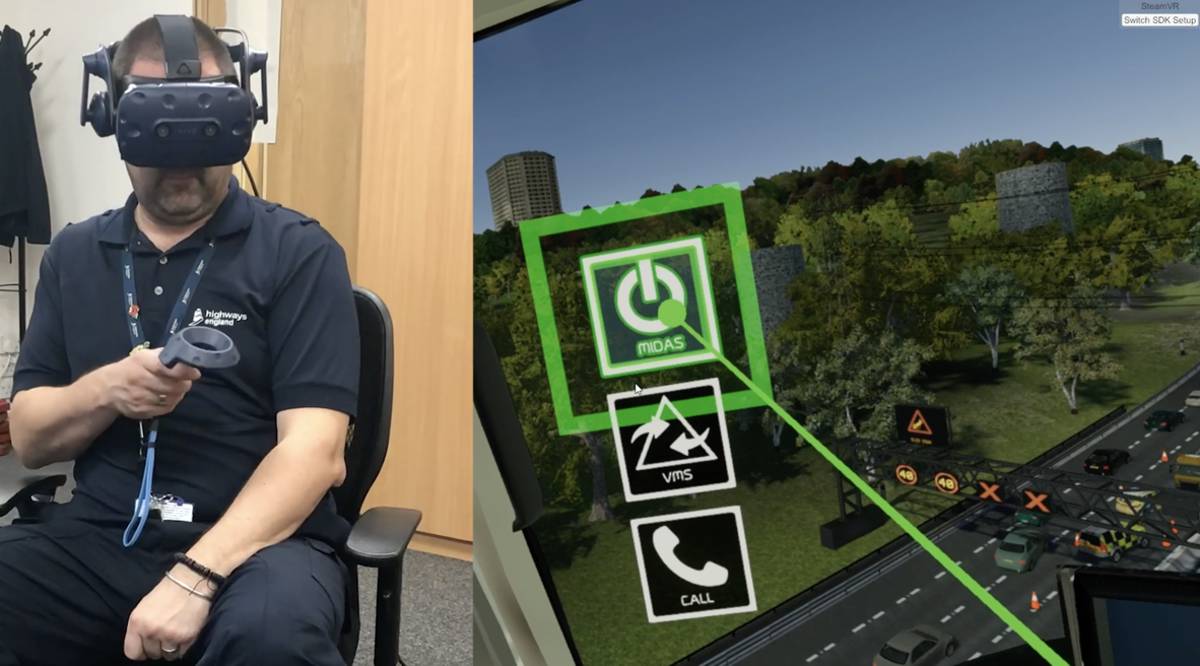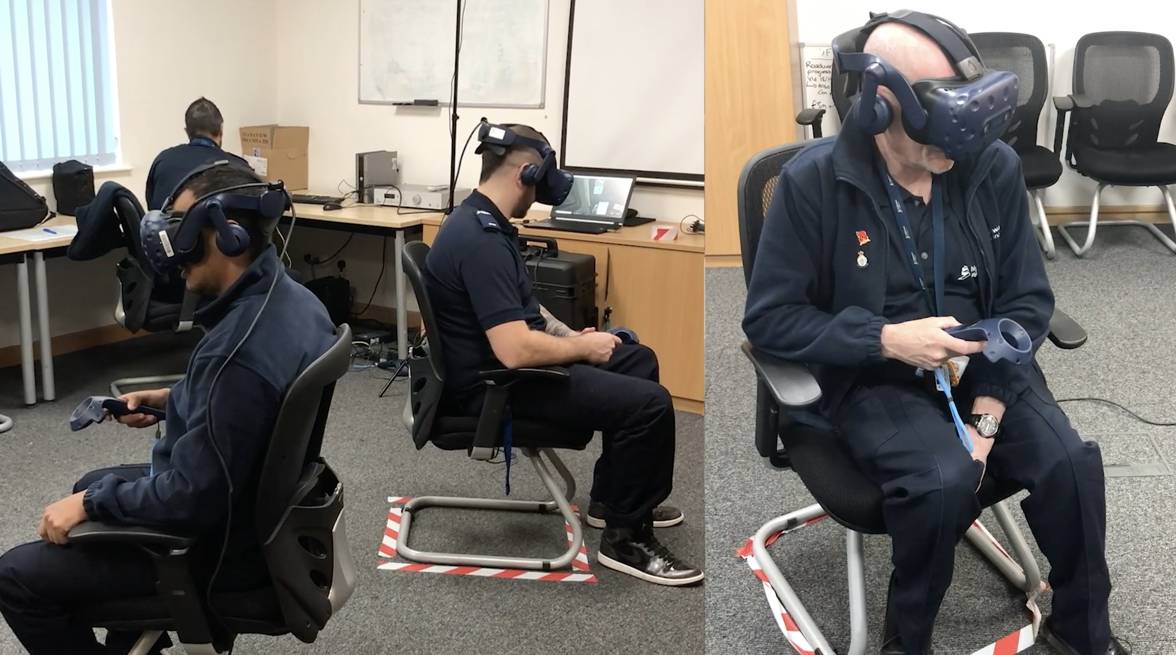Highways England using Virtual Reality to train control room operators
One of the great strengths of virtual reality (VR) is its ability to allow users to experience real-world training scenarios, without endangering them, colleagues or the general public.
That is why Highways England (HE) turned to London-based virtual reality specialists MXTreality, when a new training programme was required to help control room operators better understand the impact of their actions on the customer satisfaction of motorists using the strategic road network.
This was the first such training programme delivered by HE and it quickly demonstrated the advantage of not just explaining how Variable Signs & Signals (VSS) work, but allowing operators to experience how their use effects traffic flow and how decisions impact driver satisfaction.

MXTreality Managing Director, Toby Pettinger, takes up the story: “Training programmes of this nature are typically delivered in the classroom, often taking people away from their day job, with a lot of paper-based collaterals, training videos and whiteboard sessions. Despite the best efforts of trainers, engagement can be a challenge, especially with drier subjects.
“But HE is an innovative organisation and recognises the benefits afforded by VR. Instead of taking more than 400 mission critical operators out of their control rooms for a day, sending them to a training centre and paying for accommodation, we were able to bring the training scenarios to them, with the timings of each session planned around the operational priorities on the day.
“Our business is focussed on what we can deliver using the capabilities of VR to achieve the desired outcome – it’s far less about the equipment, which to the average client should be irrelevant, once they’re past the initial excitement of working with immersive technologies.
“Working closely with the HE training team we devised five common real-world scenarios, which would be experienced by the operators in an immersive environment using headsets and binaural audio through integrated headphones to increase the sense of realism.
“The programme lasted around 25-minutes and was delivered at the regional control centres, with a small group of operators undertaking the training at the same time, in the same (sometimes very small) room.
“Regardless of how many times the scenarios were run, they were always the same and this 100% consistency of delivery ensures the performance of operators in different locations, training at different times can be compared to their colleagues, to provide the trainers with valuable feedback.
“For most operators, using VR was a new approach to training and listening to them discuss their experiences with colleagues during and after the training, it was obvious virtual reality had brought them closer together and improved the team ethos.”

The decisions made by operators in the control rooms can have serious impacts on the roads and the motorist’s journey, yet setting the VSS is not always an automatic process. It can actually be quite subjective, so getting the operators to discuss the solutions to the scenarios was a serious added benefit for HE. And road users.
All the operators were surveyed after they had undertaken their training and the collated results highlighted overwhelmingly positive feedback, with responses double the average compared to training programmes delivered via a classroom-style approach.
Pettinger concludes: “And of course, one of the major advantages of devising, creating and implementing VR training programmes is the significant cost reduction and associated lack of disruption to normal operations for the organisations.
“When all the advantages are considered in the context of improved learning, better user experiences and cost savings, the argument for virtual reality training solutions becomes increasingly compelling.”





























